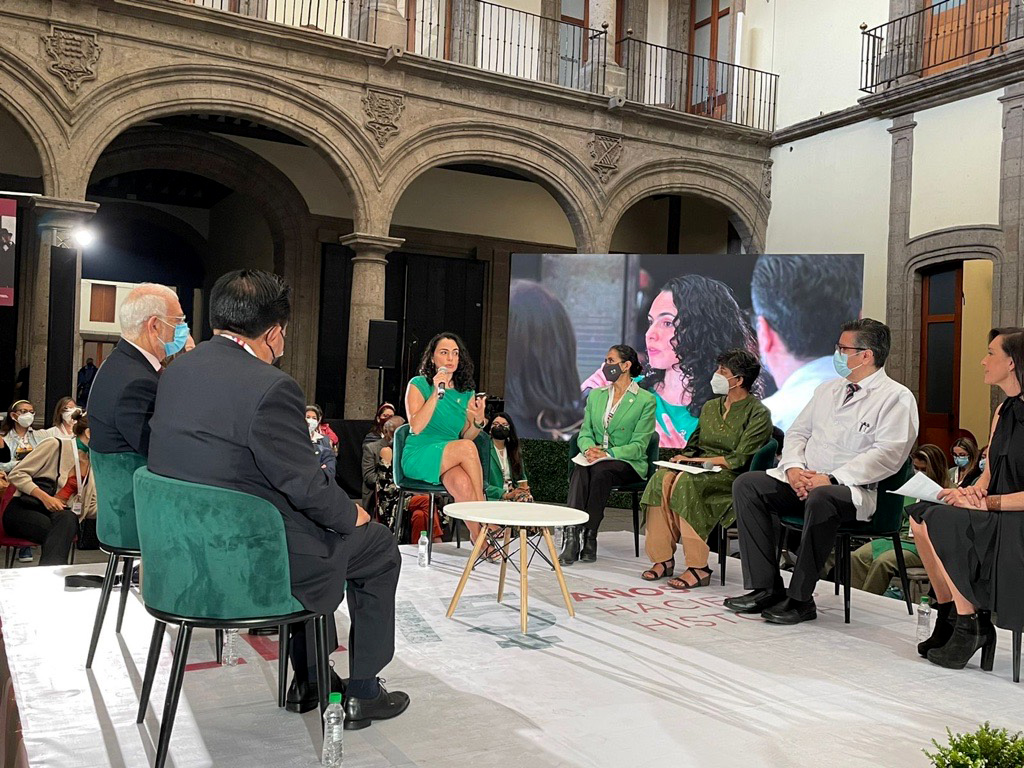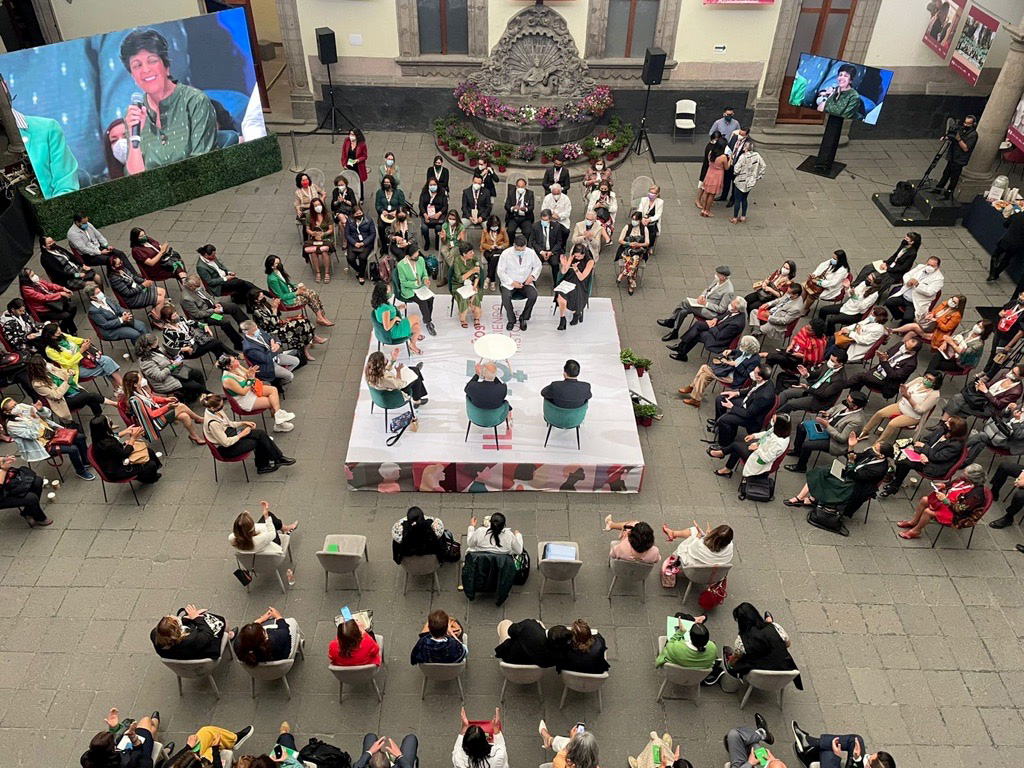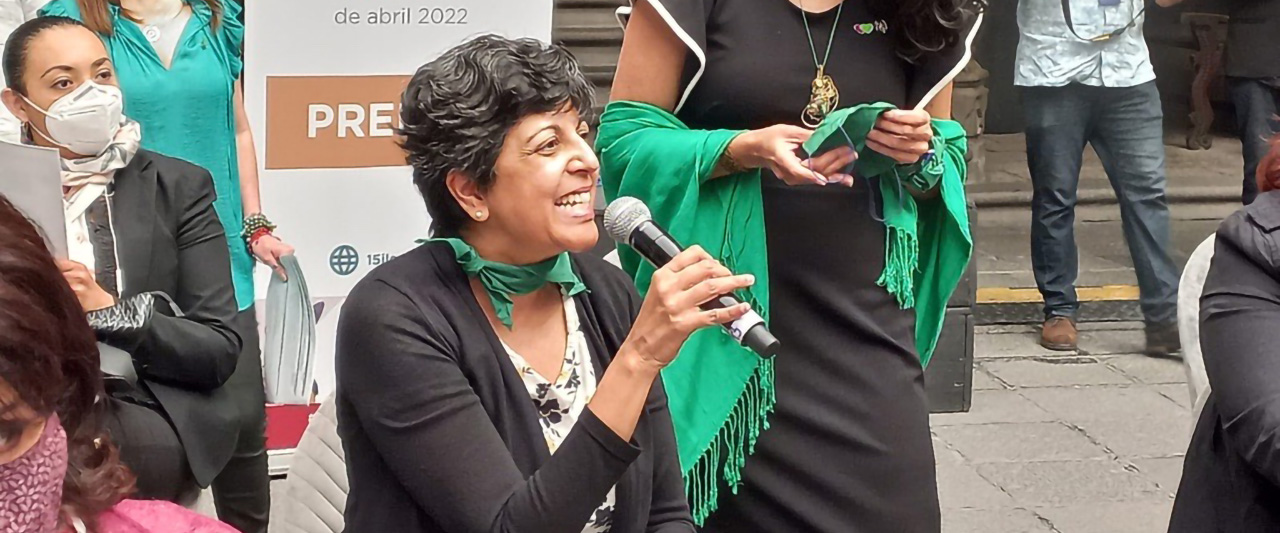In Mexico City this week, I got a renewed sense of what it means to make reproductive rights a reality.
Until 2007, abortion was a crime throughout Mexico. Wealthy women could travel to the U.S. for a safe procedure, but for many women the only choice was to resort to an abortion by unsafe methods, putting their lives and health at great risk.
All of that began to change when the Mexico City legislature approved a law in 2007 making abortion legal in Mexico City during the first 12 weeks of pregnancy, with services available throughout the public and private sectors.
To celebrate the 15-year anniversary of that landmark legislation, Ipas Central America and Mexico and the Ministry of Health of Mexico City organized a two-day event to look at the impact the law has had on sexual and reproductive health and at the challenges that lie ahead in continuing to guarantee that abortion is recognized as an essential health-care service.
There were presentations, panel discussions and lots of analysis—mixed in with some celebratory singing and lots of green. Green dresses, green scarves, you name it, all worn proudly in solidarity with the “green wave” of abortion rights activism that has been sweeping across Latin America and now into countries around the world.

María Antonieta Alcalde, Director, Ipas Central America and Mexico speaking at the event

Over the past 15 years, nearly 250,000 women have had safe and legal abortions in Mexico City, with a significant percentage of them traveling to Mexico City from other parts of the country. I got the chance last week to visit one clinic where abortion care is provided and was immediately struck by the fact that the word “abortion” was spoken openly, not whispered. Abortion was being recognized for what it is: health care, not a crime.
Another striking thing I learned is that since 2007, there have been no abortion-related deaths in the Federal District of Mexico (as Mexico City is formally known). It’s not an exact comparison, but, prior to the law change, an estimated 150,000 women a year suffered abortion-related complications in Mexico.
So, what does reproductive rights look like in reality? In Mexico City, it looks like 250,000 women served, zero abortion-related deaths, an over 80% reduction in emergency cases, and high-quality services for free, including the option of abortion with pills.
All of this came about because of years of hard work and activism by Ipas, our incredible partners, and the government. At the time, activists were so enthused they thought there would be a domino effect in the country and that many states in Mexico would also liberalize their laws. This proved not to be the case and, indeed, the victory in Mexico City galvanized the anti-choice actors resulting in effective advocacy on their part to stifle further change.
To me, this is a lesson in the value of being persistent, patient and creative. Activism shifted to a greater focus on litigation strategies while continuing to ensure that services were being provided in the most expansive way possible. Ultimately, the Supreme Court of Mexico declared that laws criminalizing abortion are unconstitutional. The ruling signals that no person who has an abortion anywhere in Mexico should face prosecution—because it violates their constitutional rights to autonomy and reproductive freedom. One by one, states across Mexico are beginning to legalize abortion, with six taking that action so far.
Abortion rights activists everywhere—and particularly in the United States, where the constitutional right to abortion is the verge of being overturned this summer—should note that progressive change is possible no matter the odds. Mexico has one of the largest Catholic populations in the world and the Roman Catholic Church has been a formidable opponent of abortion, yet change has happened because of the persistence of activists willing to fight for reproductive justice, including access to abortion and contraception for all who need it.
There is more to be done in Mexico, including updating clinical procedures so they are less medicalized, reducing the number of requirements for young people to access services, changing the laws and implementing services in many more states in the country, and most importantly, fostering feminist movements at the state level. And yet it is important to pause and celebrate. Fifteen years of safe, legal abortion in Mexico City is a major achievement resulting in 250,000 people being able to access a medical procedure and get on with their lives.


